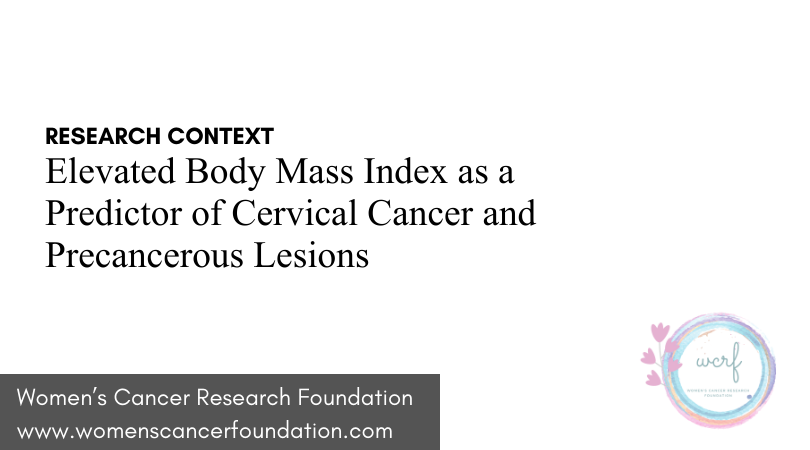Considering Ovarian Removal during Hysterectomy: A Study on Long-Term Outcomes
- Women's Cancer Research Foundation

- Aug 7, 2023
- 3 min read
Updated: Jan 12, 2024

The decision to remove ovaries during a hysterectomy for benign gynecologic conditions has been a topic of ongoing debate. While some rationales support this practice, the guidelines remain unclear. A recent comprehensive study aimed to compare the long-term outcomes in women who underwent a hysterectomy with or without bilateral salpingo-oophorectomy (BSO) - the surgical removal of ovaries and fallopian tubes. The study, encompassing over 142,000 women, sheds light on the potential impacts of this procedure on cardiovascular health, cancer incidence, and overall mortality.
Research Methodology:
The study involved 142,985 women aged 20 years and older who underwent hysterectomy, with 22,974 of them undergoing BSO and 120,011 without BSO, spanning from 1977 to 2017. The researchers examined primary outcomes, including overall hospitalization for cardiovascular disease, overall cancer incidence, and all-cause mortality, up to December 2018.
The study, encompassing over 142,000 women, sheds light on the potential impacts of this procedure on cardiovascular health, cancer incidence, and overall mortality.
Findings and Implications:
The study's results highlighted significant differences between women with and without BSO, particularly in relation to age groups.
Cardiovascular Disease Risk in Younger Women:
Women younger than 45 years who underwent BSO had a higher 10-year cumulative risk of hospitalization for cardiovascular disease compared to those without the procedure. This finding raises concerns about potential impacts on cardiovascular health, especially in premenopausal women.
Cancer Risk in Middle-Aged Women:
For ages 45 to 54 years, women with BSO had a higher 10-year cumulative risk of cancer compared to their counterparts without the procedure. This suggests that removing ovaries in this age group may be associated with an increased cancer risk, warranting further investigation.
Mortality Rates in Different Age Groups:
Across all age groups, women who underwent BSO had a higher 10-year mortality risk, although the statistically significant difference was observed mainly for ages 45 to 54 years. This finding raises questions about the potential impact of ovarian removal on overall survival in certain age cohorts.
For ages 45 to 54 years, women with BSO had a higher 10-year cumulative risk of cancer compared to their counterparts without the procedure.
Conclusion and Recommendations:
The study's findings support the current recommendations for preserving ovaries in premenopausal women who do not have a high risk for ovarian cancer. This cautious approach helps safeguard cardiovascular health, minimize cancer risks, and improve overall survival outcomes.
While this study provides valuable insights, further research is required to delve deeper into the long-term effects of BSO and understand the nuances of its impact on various patient populations.
In postmenopausal women, the study urges careful consideration of BSO to avoid potential adverse effects on cardiovascular health and mortality rates. It is essential for healthcare providers to engage in comprehensive discussions with patients, taking into account individual health risks and factors before making decisions about ovarian removal during hysterectomy.
While this study provides valuable insights, further research is required to delve deeper into the long-term effects of BSO and understand the nuances of its impact on various patient populations. At the Women's Cancer Research Foundation, we are dedicated to advancing knowledge and improving the lives of women facing gynecologic conditions. We aim to promote evidence-based approaches and empower women and their healthcare providers with the information needed to make informed decisions about their health.
About Women’s Cancer Research Foundation:
The Women’s Cancer Research Foundation (WCRF) is one of the most active research organizations in the nation. We are dedicated to studying and evaluating novel treatments for women afflicted with breast, ovarian, endometrial, and cervical cancers. The WCRF persistently endeavors to make a difference in women’s lives by offering them hope, strength, and progress.
Laguna Beach, CA 92651
PH: (949) 642-5165
Follow Us On Social Media:











Comments